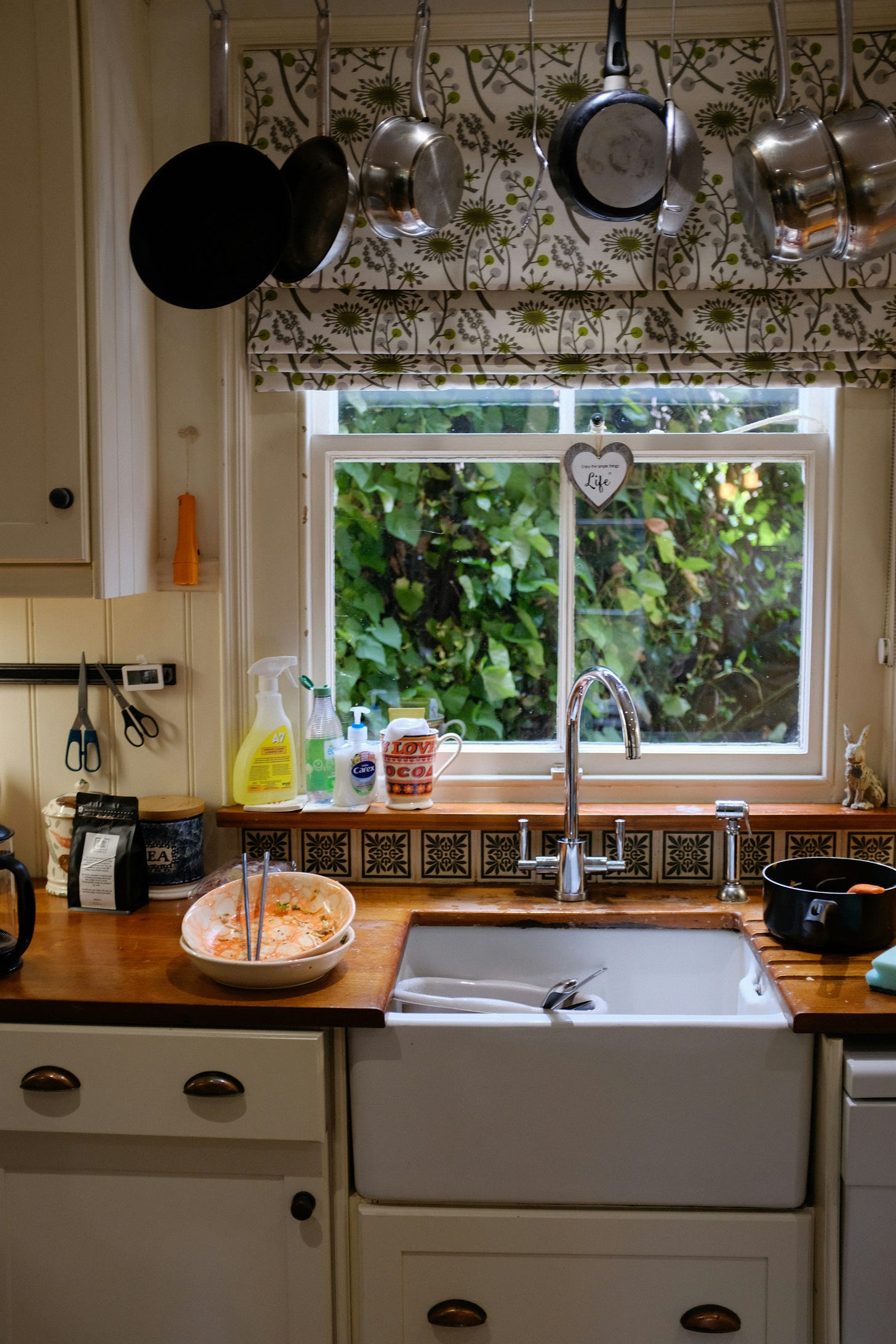“Happy people love people and use things; unhappy people use people and love things.”
-Arthur C. Brooks
My boys and their friends have entered into the age where appearance is extremely important. Whether they’re sprawled out across the living room or stinking up the car on the way home from the gym, talk often turns to crisp haircuts, visible abs, and uncreased sneakers.
I get it. When I was a teen and applying for jobs at the mall (soooooo COOL!) my dad offered to do a mock interview with me where I uttered the phrase, “Fashion is, like, my whole life!”
Credit to Dad for not rolling his eyes.
Unless you live in some Edenic off-the-grid way, it’s hard to move through the world without being affected by the siren call of advertising—suddenly I need the trendiest haircut, the new “it” pants, brand new sandals.
But even as I scroll through email after email about all the “Can’t-Miss Prime Day Deals!” a part of me knows this purchase will not solve your problems. If I’m unhappy in my old skinny jeans, I will continue being unhappy in new barrel leg ones.
I suspect most of us are aware, at some level, that new clothes or new cars, bigger houses or more luxurious vacations will not solve our problems, but that doesn’t stop us from craving them. That may be due to the fact that many advertisers are not above creating problems so they can then sell us the solutions.
In this culture, it often feels difficult to love people rather than things. It’s in the language we use, where the “L” word is reserved mainly for long-term partners or immediate family but liberally sprinkled about product reviews. There are countless articles in my feed everyday with titles like “10 Products our Beauty Editors Love!” And I once read a kitchen reno article in the paper with the haunting line: “It’s not my dream sink, but it works.”
(What is a “dream sink”? Who dreams of sinks? Does dreaming of sinks indicate a deep love of dishwashing or just that it’s possible to be miserable about absolutely anything at this point?)
Is it a coincidence that as we grow more emotionally attached to our possessions, we increasingly shrink from relationships? Americans are lonelier and less social than ever. And when you look at the products and technology that surround us, maybe that makes sense. Real people are complicated, messy, and inconvenient—generally speaking, it’s a lot easier to listen to a podcast than to find a time to talk to my friends.
We often use people without meaning to. I don’t necessarily mean this in a blatantly manipulative/sociopathic way (although those people certainly exist) but even in subtler Capitalism-approved ways, like when people are pushed to sell items or services to their existing social network. I’ve definitely gotten emails that feel like, are we friends or do you just want to make money off me?
And yet, as Arthur C. Brooks points out in the conclusion to his column, How to Build a Life,
“Research on people who wind up happy (and healthy) as they grow old shows that the most important part of life to cultivate is a series of stable, long-term love relationships.”
But what is love? (Baby, don’t hurt me) I’ve been mulling this question over for a few years, and here’s what I’ve come up with so far:
Love is Seeing. To love someone, you have to see them for who they really are. That means looking past stereotypes or the role they play in your life. It’s seeing their good and bad traits and accepting them for who they are.
Love is Showing Up. It’s not enough to feel warm fuzzies, or to make grand declarations, you actually have to DO STUFF. Love is never RSVPing “maybe.” It’s taking care of your people when they’re sick. It’s choosing to be inconvenienced.
Love is Treating them How They Want to Be Treated. It’s honoring their weird dietary requests even if you think they’re kind of nuts. It’s using their preferred pronouns. It’s respecting boundaries. It’s treating people as an end in themselves, not a means to an end—even if your goal is something as supposedly noble as “saving souls.” (*cough* Evangelicals *cough*)
Love is Showing Others How to Treat You. Love is not objectifying yourself by becoming a doormat. The essence of a relationship is reciprocity. If I allow you to walk all over me, both of us are cheated out of a real relationship. To that end, loving people from a safe distance is also love.
So I’m trying to teach my kids, as well as myself, that neither new Jordans nor visible abs will truly make us happy. But spending hours hanging out in the living room, trash talking other over a game of Madden? That just might.
What would you add/subtract to my “Love List”? Have you figured out a way to scroll Instagram without developing a gnawing feeling of inadequacy that can only be cured with an expensive skin care regime? Let me know in the comments!
BONUS MATERIALS:
this
article shows a lot of fascinating data about the decline of parties: The Death of Partying in the U.S.A.—and Why It Matterswanna be a hero? Throw a block party.
breaks it down for you here: How to Throw a Block Party - by Katherine Goldstein





This is so great, thank you! And yes—who dreams of sinks? Mine is wonderfully used right now and filled with dishes. Thank you for the reframe.
I love your list and wouldn’t change a thing!